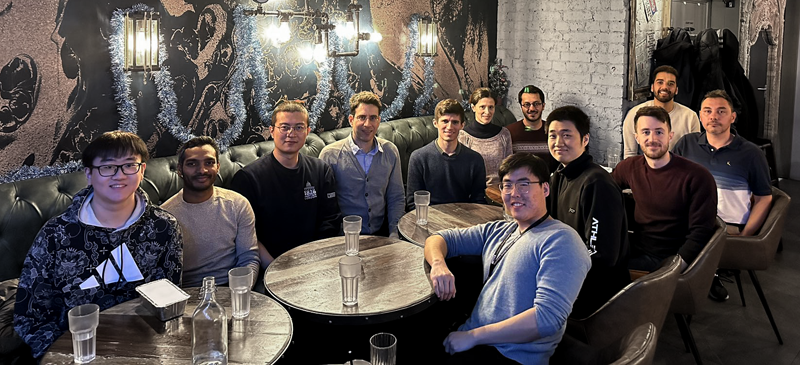
Principal Investigator
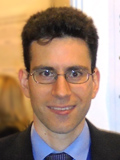
Prof. Michail Stamatakis
Michail is Professor of Computational Inorganic Chemistry at the University of Oxford (Inorganic Chemistry Lab), since September 2023. Prior to joining Oxford he was a member of Academic Staff (Lecturer-Professor) at the Department of Chemical Engineering at UCL. He had his post-doctoral research appointment at the University of Delaware (Newark, DE, USA) under the supervision of Prof. Dionisios G. Vlachos, after obtaining his PhD from Rice University (Houston, TX, USA), where he worked under Prof. Kyriacos Zygourakis and Dr Nikos Mantzaris. Michail also holds a Diploma in Chemical Engineering from the National Technical University of Athens (Greece), where he did his Diploma Thesis research under the advising of Prof. Andreas Boudouvis, as well as Dr Nikos Mantzaris in the context of two short placements to Rice University as a Visiting Scholar.
Full CV (opens pdf in new window) • Oxford Chemistry page • Google Scholar profile.
Post-Doctoral Researchers
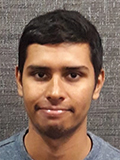
Sai Sharath Yadavalli
Sai Sharath completed his Bachelor’s degree in Chemical Engineering from the National Institute of Technology Trichy, India in 2016. He subsequently worked as a Process Engineer at Dr. Reddy’s, a multinational pharmaceutical company, for about a year. In 2017, he got admitted at the University of Manchester to pursue an MSc in Advanced Chemical Engineering. His Master’s thesis involved molecular dynamics simulations to compute the diffusivity of H2S gas in liquid benzene at oil reservoir conditions. He joined the lab in September 2018 and completed his PhD studies in December 2023, after which he joined the lab at Oxford. His work aims at understanding the coking thermodynamics and intrinsic chemistry of methane steam reforming on Ni via kinetic modelling.
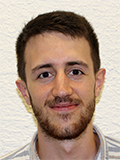
Dr Hector Prats Garcia
Hector studied Chemistry at the University of Barcelona (Spain). In 2015 he started his PhD also at University of Barcelona with Prof. Francesc Illas and Prof. Ramón Sayós, and in 2019 he defended his Thesis on “Monte Carlo based methods applied to heterogeneous catalysis and gas separation”. Then, he spent one year (2020-2021) at the Technical University of Denmark working on hydrogen redox reactions under the supervision of Dr Karen Chan in the group of Prof. Jens Nørskov. In March 2021, Hector joined the lab as a Marie Curie Fellow, working on computational screening of transition metal carbides for methane partial oxidation.
Graduate Students

Zeyu Wu
Zeyu completed his undergraduate and master’s studies at University College London in 2022, graduating with a first class honour degree. He then joined the lab as a PhD student in 2022. His work focuses on developing and using predictive modelling approaches (quantum chemistry calculations and kinetic Monte Carlo simulations) to guide the development of catalytic materials and processes that prevent deactivation via poisoning.
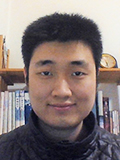
Weitian Li
Weitian completed his undergraduate studies at the Beijing University of Chemical Technology, China, in 2019. He subsequently obtained an MSc in Materials for Energy and Environment at University College London in 2020, before joining the lab in the same year as a PhD student. His work focuses on the catalytic pathways of biomass conversion to fuels and chemicals on single atom alloy catalysts, and adopts quantum chemistry and statistical mechanics methods.

Teng Martin Ma
Teng completed his BSc in Chemical Engineering and Technology from Tianjin University, China, in 2015. He subsequently joined Carnegie Mellon University, USA, and obtained an MSc in Chemical Engineering in 2016. After graduating from Carnegie Mellon, he worked at Synfuels China Technology Co. Ltd. in Beijing for 2.5 years, before joining the lab for PhD. His research project aims at elucidating the strong interactions between nanoalloy components and supports, using neural network potentials.
Affiliated and Visiting Researchers

Dr Miguel Pineda Rodriguez
Miguel obtained a B.Sc. in Physics from the University of Los Andes (Merida, Venezuela), and a PhD in Physical Chemistry at Leibniz University Hannover (Hannover, Germany). After his PhD, he worked as researcher in world leading interdisciplinary research institutions in Spain, Belgium, and UK, and as a Lecturer in Physics at Simon Bolivar University in Venezuela. He joined our lab for the first time in 2016 and he has worked on kinetic Monte Carlo method development as well as hydrate modelling. Since January 2023 he is Associate Lecturer (Teaching) in Computational Materials Modelling at UCL.
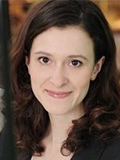
Dr Julia Schumann
Julia studied Chemistry at the University Tübingen (Germany). In 2011 she started her doctoral studies at the Fritz-Haber-Institute Berlin with Prof. Robert Schlögl, and in 2015 she defended her Thesis on “Cu,Zn-based catalysts for Methanol Synthesis” at the Technical University Berlin (Germany) with “summa cum laude”. She spend two years (2016-2018) at Stanford University (California, USA) investigating transition metal surfaces for higher alcohol synthesis in the group of Prof. Jens Nørskov. In March 2019, Julia joined the lab in a joint position with Prof. Angelos Michaelides’s group (at the time in the UCL Department of Physics), and her research focused on single atom alloys for energy conversion reactions. She is currently a member of the Development Team at FAIRmat.
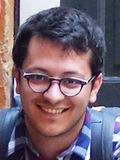
Dr Romain Réocreux
Romain completed most part of his studies in Chemistry at the École Normale Supérieure de Lyon, France (BSc & MSc in Sciences of Matter, MSc in Chemical Education). He then joined the group of Prof. Philippe Sautet and Dr Carine Michel in 2014, for his PhD in Computational Catalysis. Using a large range of ab initio techniques (transition state search, AIMD, rare-event methods) he studied the adsorption and reactivity of biomass compounds on Pt(111) and their role in the stabilisation of γ-alumina in hot liquid water. In November 2017, he joined the lab as a Research Associate, conducting research that focused on understanding the reactivity of single-atom alloy metal catalysts. As of September 2022 he is working with Dr Ozgur Yazaydin at UCL Chemical Engineering.